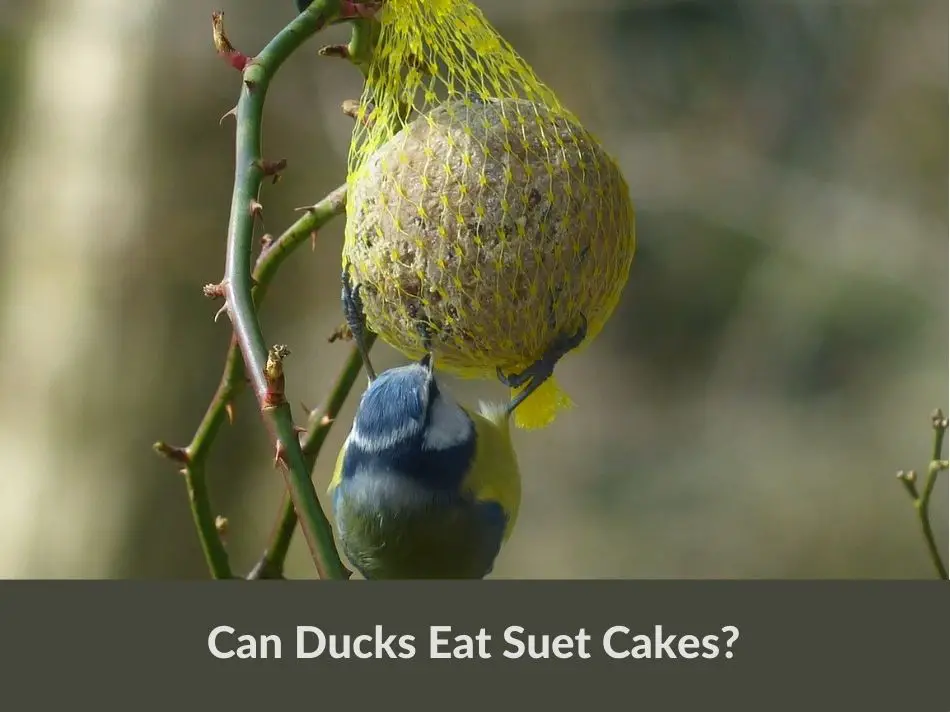Ducks are omnivorous creatures, and their diet comprises a mixture of aquatic plants, small fish, insects, crustaceans, and sometimes grains and seeds. Their diet varies depending on the species, habitat, and availability of food. But, can ducks eat suet cakes?
Ducks, should not eat suet cakes. They contain a high amount of fat that can cause fatty live and they can also contain additives and preservatives that aren’t suitable for ducks.
In this article, we delve into the suitability of suet cakes as a food source for ducks. We’ll explore the composition of suet cakes, contrast it with a duck’s natural diet, and discuss potential health implications.
What Are Suet Cakes?
Suet cakes are a type of bird feed made primarily from suet, which is rendered animal fat. Often, suet cakes are combined with various seeds, nuts, fruits, and sometimes insects, which provide a high-energy source for many bird species, especially during the winter months.
Suet’s primary appeal is its high calorie and fat content, which helps birds maintain energy reserves during times when natural food sources may be scarce.
Are Suit Cakes Suitable For Ducks?
- Nutritional Composition: Suet is high in fat, providing a concentrated energy source. While it might seem like a beneficial source of energy for ducks, especially during colder months, ducks already have their methods of maintaining energy through their natural diet. Overloading them with the high fat content in suet can potentially lead to obesity and related health issues.
- Additives and Ingredients: Suet cakes often contain seeds, nuts, and fruits that may not be part of a duck’s natural diet. Some of these seeds can be too large or difficult for ducks to digest, leading to potential gastrointestinal issues. Moreover, commercially produced suet cakes may contain additives or preservatives that aren’t suitable for ducks.
- Physical Composition: Ducks are not equipped to peck at hard surfaces like woodpeckers or other suet-loving birds. A suet cake hanging in a garden may not be easily accessible to ducks, and if placed on the ground, it may attract unwanted pests or lead to mold growth if not consumed quickly.
- Potential Health Concerns: A diet too high in fat can cause fatty liver disease in ducks, impacting their liver function and overall health. While occasional nibbling might not pose significant harm, regularly feeding ducks suet can lead to long-term health issues.
Food Alternatives To Suet Cakes
Ducks have a versatile palate, and many gardeners and poultry enthusiasts are curious about which vegetables are safe for these feathered friends. While their natural diet is diverse, offering additional vegetables can provide them with beneficial nutrients.
Look into other animal feed ducks can eat for treat options that are both enjoyable and beneficial.
Conclusion
While suet cakes are a wonderful dietary supplement for many garden birds, they are not the best choice for ducks. Ducks have specific dietary requirements, and their natural food sources are generally sufficient to meet their needs.
If you’re keen on supporting your local duck population, focus on providing them with safe, duck-appropriate foods and ensuring a clean habitat.
Disclaimer: The information in this article is for informational purposes only. I'm not an expert or a veterinarian.


